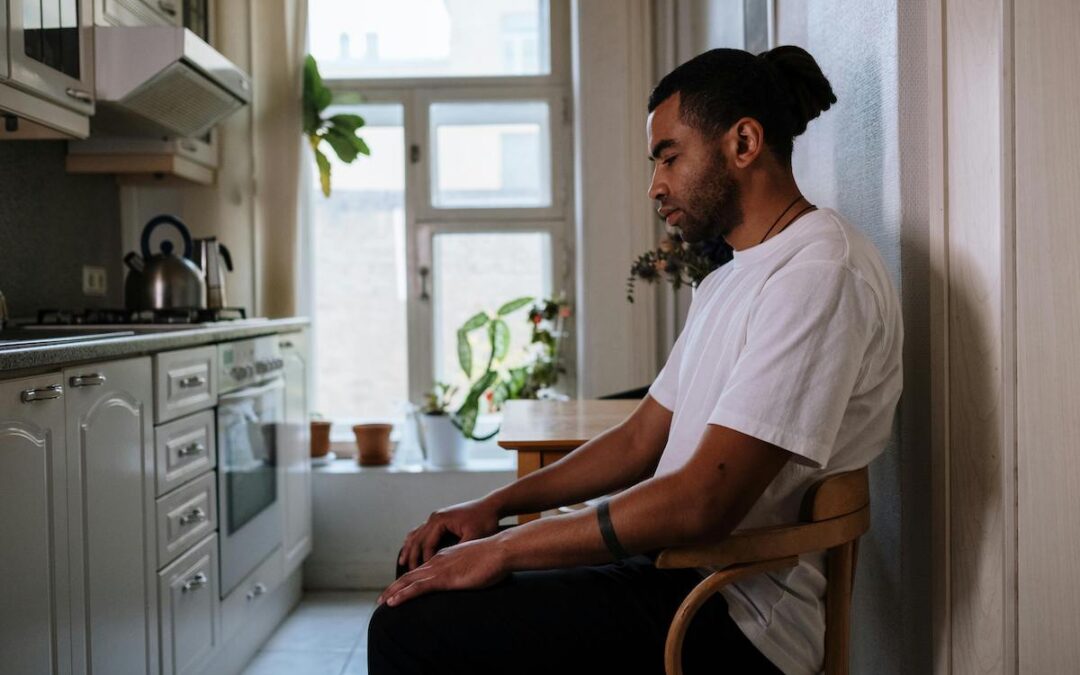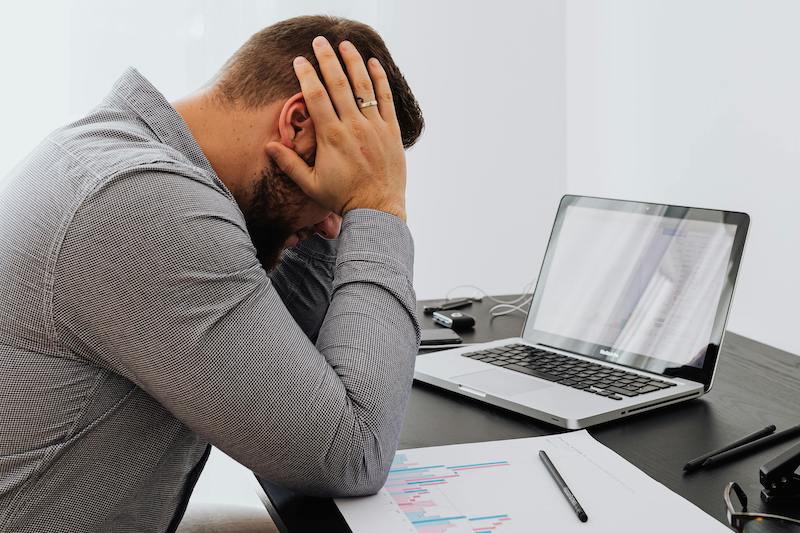Anxiety Therapy
IN PERSON & ONLINE THERAPY AVAILABLE
Do You Feel Overwhelmed And Exhausted By Anxiety?
Does your anxiety make it difficult to fulfill your commitments at work or school?
Are you so nervous about meeting new people or trying out new activities that you spend most of your time alone?
Have you lashed out at others because you’re having a hard time managing your stress?
Anxiety is characterized by intense feelings of fear, dread, and uneasiness, and while this condition can occur as a result of chronic stress, sometimes anxiety can spring up without an obvious cause. Your anxiety might hold you back from seeking new opportunities, forming healthy relationships, or even relaxing during your downtime.

Anxiety Can Cause You To Withdraw From Others
When you’re struggling with anxiety, you might feel particularly worried about spending time with other people. You may isolate yourself from your loved ones or stop trying to make new connections. Your symptoms feel so draining that you just can’t bring yourself to engage in social situations. Furthermore, common anxiety symptoms like insomnia and a racing heart rate make you wonder if you’re physically sick. You may even experience panic attacks that make you feel completely disconnected from your body, which can be disorienting.
Perhaps you’ve lived with anxiety for such a long time that the idea of feeling calm, content, and comfortable in your own skin again seems impossible. Working with a therapist can be an empowering way to take back your agency, learn healthy coping skills for managing anxiety, and begin living in the present rather than ruminating on the future or the past.
Relevant Blog Posts

5 Effective Ways to Calm an Anxiety Attack
An anxiety attack is a sudden surge of intense fear or worry, often triggered by specific situations. Unlike panic attacks, which are more severe, anxiety attacks typically involve feeling tense, irritable, and restless. You might experience racing thoughts,...

Understanding OCD: Origins, Treatments, and More
Obsessive-Compulsive Disorder (OCD) is often misunderstood as simply being overly fixated on cleanliness or organization. In reality, OCD is a complex mental health condition characterized by intrusive, recurring thoughts (obsessions) that lead to compulsive,...

Managing Fear of the Unknown
Fear of the unknown is a natural response to uncertainty and change. As humans, we are wired to seek stability and predictability. When faced with the unpredictable, our minds may spiral into worry and anxiety. While uncertainty will always be present in life, this...

Enforcing Boundaries: Knowing When and Where to Draw the Line
Do you feel like you're being pulled in a million directions? Like everyone wants a piece of you, and you just can't say no? You've probably heard the phrase "set boundaries," but what does that really mean? Boundaries are invisible lines that define where you end and...

How to Deal With Burnout As a High Achiever
Burnout is something that most of us have either experienced or likely will come to experience at some point. Burnout is essentially exhaustion in every sense of the word: physical, emotional, and mental. Burnout is more than just being tired from a day at work — it’s...
Do You Have Questions About Anxiety Therapy? Contact Us
If You’re Living With Anxiety, You’re Not Alone
Dealing with anxiety can feel like a lonely experience. After all, anxiety often creates barriers to developing close relationships, and people with anxiety often put distance between themselves and their support systems. In reality, anxiety is one of the most common mental health disorders, and countless people struggle with anxiety at some point in their lives.
Sometimes, living through a traumatic event can set off symptoms of anxiety, but anxiety does not always have a clear cause, and it can arise due to genetic or environmental factors. Many people with anxiety struggle with fears around their academic or professional performance, interpersonal relationships, health, gender or sexual identity, and parenting.
People Struggle With Different Types Of Anxiety
Anxiety can manifest in different forms. Some people suffer from generalized anxiety disorder, which involves excessive worrying about many different things in your life that lasts for months to years. Others deal with social anxiety, and their anxiety around interacting with other people makes it difficult to attend events or connect with friends. A person might also suffer from separation anxiety, which refers to high levels of distress around being physically separated from their primary caregiver or loved one. Additionally, some people live with phobias, or extreme fears about a specific situation or thing.
No matter how your anxiety presents itself in your life, it can be extremely challenging to overcome these symptoms on your own. Without outside input, your symptoms can keep you trapped in a loop of rumination, fear, and inaction. A therapist can support you along your healing journey and cultivate a sense of ease in your life.
Finding Support Through Therapy Can Help You Heal From Anxiety
Anxiety can make the simplest tasks feel like monumental undertakings, so it’s normal to feel a bit nervous about meeting with a therapist. At Relucent Psychology Group, our therapists create a warm, welcoming environment where you can find relief from your anxiety and work towards restoring a foundation of normalcy in your daily life. We offer in-person and virtual therapy services to accommodate clients with a variety of circumstances. We also have a team of excellent therapists with different approaches and styles. So if you feel you’re matched with a therapist that isn’t the right fit for you, let us know! We’ll be sure to work closely with you to ensure you’re matched with the therapist that makes you feel as comfortable and confident as possible in your healing journey.
What To Expect In Anxiety Counseling Sessions
During sessions, your therapist will help you explore possible causes and triggers for your anxiety. They might recommend environmental or lifestyle changes to eliminate factors that are exacerbating your anxiety. You’ll learn and understand the source(s) of your anxiety so you can better understand yourself and why you feel the way you do. You’ll practice letting go of negative feelings, rather than ruminating on these experiences over and over again. Additionally, your therapist will emphasize mindfulness principles so that you can stay grounded and centered, even when you’re juggling lots of responsibilities.
Treatment Approaches For Anxiety Therapy

You’ll also learn techniques for managing your symptoms that you can use to navigate your day-to-day life. For example, your therapist might recommend meditation or other mindfulness practices to help you stay grounded in the present and allow yourself to identify thoughts and sensations without getting attached to them. Overall, your therapist will support you as you learn to tap into your confidence and engage with the world without becoming overwhelmed by anxiety.
Medication can also be a useful tool for people with anxiety in combination with talk therapy. Although we do not prescribe medication at our practice, your therapist can also refer you to a medical professional with prescribing privileges if you are a good candidate.
Through therapy, you can find freedom from the constraints of anxiety. Counseling for anxiety can help you find relief from the symptoms that have been preventing you from living fully, so that you can build a life you truly love.
But You May Still Have Questions About Anxiety Therapy…
How do I know whether or not my level of stress and anxiety is normal?
Everyone experiences anxiety from time to time. However, severe anxiety and chronic stress can negatively affect your relationships, your physical health, or your performance at work or in school. Maybe you manage to find temporary relief from these symptoms sometimes, but they always crop up again. If this is the case, you may be suffering from an anxiety disorder, and it might be time to consider therapy.
Can therapy really help me heal from anxiety?
If you’ve been struggling with anxiety for a long time, you might be doubtful that you’ll actually see improvements through therapy. But working with a therapist can unlock the part of you that feels “stuck” and burdened by your symptoms of anxiety. You’ll be able to express yourself freely, and your therapist will equip you with the tools you need to cope with challenges in the present.
How will my therapist help me recover from anxiety?
After learning about your background and symptoms, your therapist will collaborate with you to develop a treatment plan to meet your specific needs. You might work on accepting your anxious feelings without judgment, practicing mindfulness, quieting your inner critic, releasing the hold traumatic memories may still have on you, challenging any irrational fears, and identifying how your thoughts affect your behavior. You’ll also learn how to stay calm while navigating stressful situations.
Through Therapy, You Can Finally Address The Roots Of Your Anxiety
If you’re ready to release your anxiety and regain a sense of joy and excitement, therapy might be the right choice for you. We encourage you to call or text us today at 408-680-4114 to book a free consultation or schedule your first session.






